SUMMARY
This is AI generated summarization, which may have errors. For context, always refer to the full article.
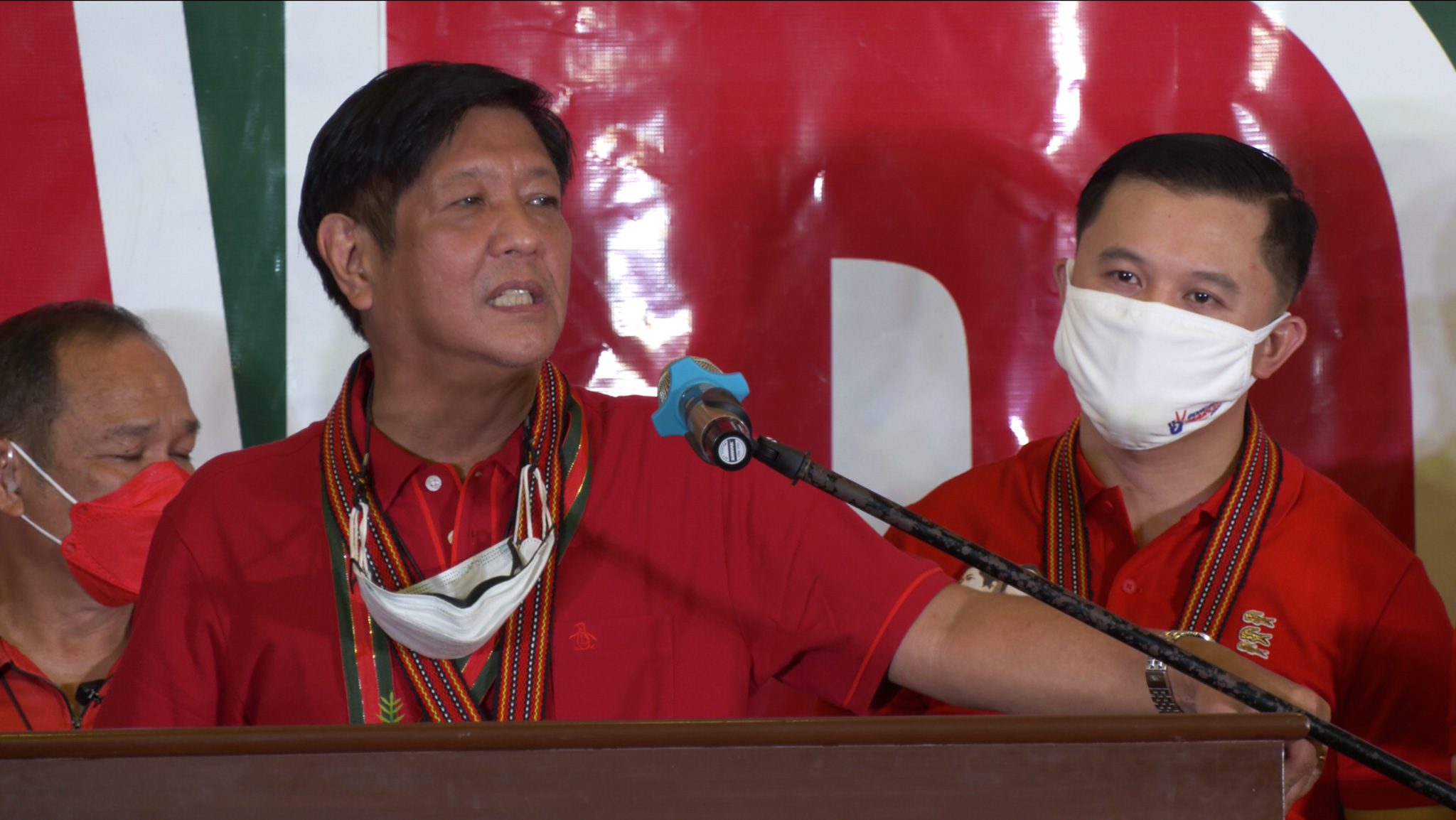
MANILA, Philippines – The camp of 2022 presidential aspirant Ferdinand “Bongbong” Marcos Jr. submitted to the Commission on Elections (Comelec) on Tuesday December 28, its scathing response to the disqualification case filed by the group whose lawyer is former poll body chairman and 1987 Constitution framer Christian Monsod.
In their answer, his lawyers did not mince words when they criticized the arguments submitted by the Martial Law survivors from La Union: “The creativity and imagination of petitioners – writing and wanting what is not there – can never be sufficient grounds to disqualify BBM.”
The petitioners – Martial Law survivors from La Union – had offered more or less the same arguments as previous petitions, mainly that Marcos should be disqualified from the 2022 race under Philippine laws due to his tax conviction in the 1990s.
But the Monsod group’s petition had a new argument: Marcos is not qualified as a voter, which means that he does not meet the constitutional requirement that a president should be a registered voter.
Marcos’ lawyers described as “manifestly preposterous and misleading” how the petitioners came up with such an argument.
The petitioners had said that when Marcos was convicted by the Quezon City Regional Trial Court in 1995, its three-year prison-term sentence was equivalent to a prision correccional sentence, which has a penalty of up to six years in prison.
The petition, citing the Revised Penal Code, had claimed that prision correccional has an accessory penalty “of perpetual special disqualification from the right of suffrage, if the duration of said imprisonment shall exceed 18 months.”
But for Marcos’ legal counsel, the “mere audacity” of Monsod’s group to allege this shows bad faith and an attempt to mislead the Comelec.
“It is… undeniable that the trial court used the term imprisonment of three years and never used the term prision correccional,” the answer read.
“The Supreme Court has already clarified time and again that the term ‘imprisonment’ and not ‘prision correccional’ should be used in reference to the penalty punishable by special laws because the term ‘prision correccional’ is peculiar to the penalties for crimes punished by the Revised Penal Code,” it added.
Marcos’ camp also noted that even if the trial court slapped a sentence that can be considered prision correccional, it wouldn’t matter because the Court of Appeals modified that decision two years later.
In 1997, the appellate court acquitted Marcos of tax evasion, and removed the penalty of prison term for his conviction over his failure to file his income tax returns (ITRs). He was only ordered to pay deficiency tax and fines.
While the petitioners had argued that the CA committed an error when it did not sustain the prison sentence, the Marcos camp called such a claim “absurd,” and noted that the Comelec has no power to nullify decisions by the appellate court.
‘Not disqualified under the tax code’
The former senator’s lawyers also disputed the recurring argument that Marcos should be disqualified because the tax code has an accessory penalty of disqualification from public office on offenders.
“It is clear that for taxable years 1982 to 1984, BBM failed to file his tax returns before the effectivity of PD 1994. Therefore, the penalty of perpetual disqualification which was introduced by PD 1994 cannot be applied to BBM’s failure to file his tax returns for taxable years 1982 to 1984,” the answer said.
What about for the taxable year 1985? Marcos’ lawyers said surrounding circumstances – particularly the EDSA revolt in February 1986 that overthrew his family – meant that the perpetual disqualification imposed under PD 1994 cannot be applied to the dictator’s son.
“[W]ell before the last day for filing of the 1985 tax returns, BBM was no longer a government official,” they said. “Since BBM has ceased to be a government official before the offense of non-filing of tax returns was consummated [on April 16, 1986], it is therefore clear that perpetual disqualification cannot be imposed on him.”
The Monsod’s group petition – also known as Salandanan et al vs Marcos – is among the six unresolved cases against Marcos’ 2022 presidential bid with the Comelec. – Rappler.com
Add a comment
How does this make you feel?
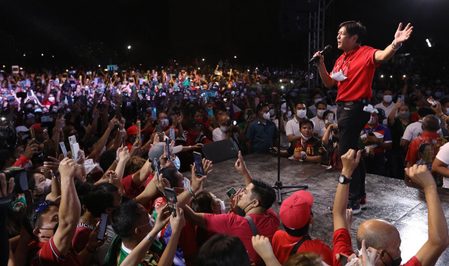
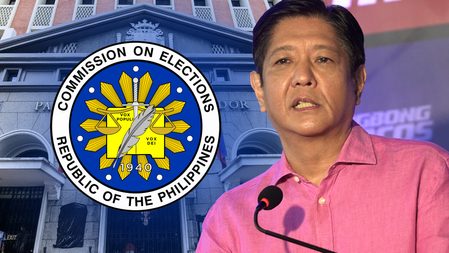
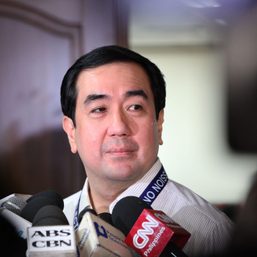
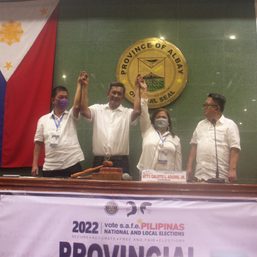
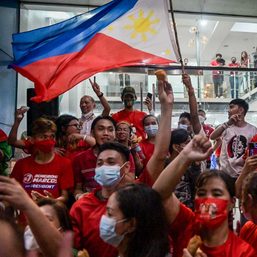

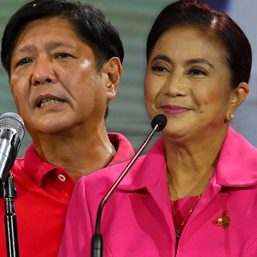
![[Newspoint] Improbable vote](https://www.rappler.com/tachyon/2023/03/Newspoint-improbable-vote-March-24-2023.jpg?resize=257%2C257&crop=339px%2C0px%2C720px%2C720px)
![[Newspoint] 19 million reasons](https://www.rappler.com/tachyon/2022/12/Newspoint-19-million-reasons-December-31-2022.jpg?resize=257%2C257&crop=181px%2C0px%2C900px%2C900px)
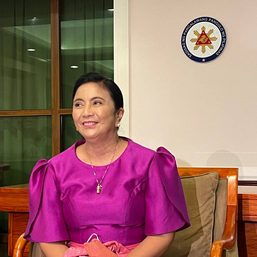







![[In This Economy] Marcos’ POGO ban is popular, but will it work?](https://www.rappler.com/tachyon/2024/07/thought-leaders-marcos-pogo-ban.jpg?resize=257%2C257&crop=255px%2C0px%2C720px%2C720px)
![[Rappler Investigates] POGOs no-go as Typhoon Carina exits](https://www.rappler.com/tachyon/2024/07/newsletter-graphics-carina-pogo.jpg?resize=257%2C257&crop=424px%2C0px%2C1080px%2C1080px)



There are no comments yet. Add your comment to start the conversation.